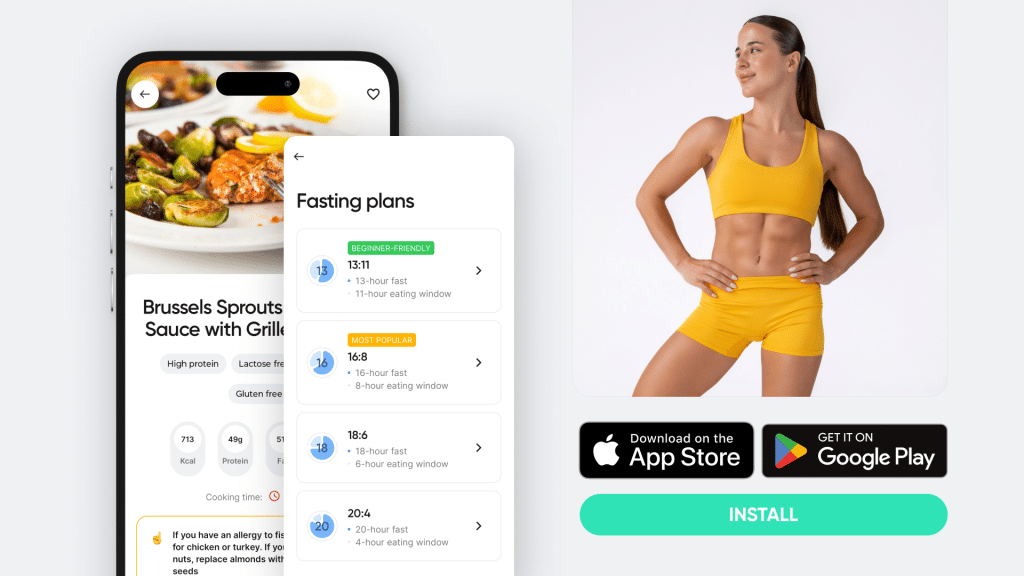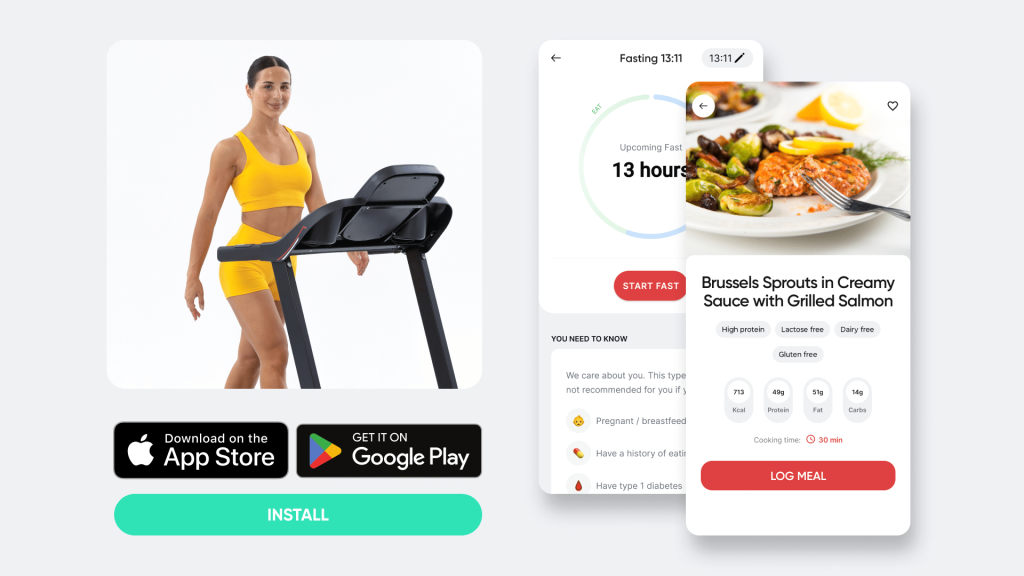Bone broth fasting has emerged as a popular method for supposed detoxification, weight loss, and overall wellness. At its core, bone broth is a nutrient-rich liquid made by simmering animal bones and connective tissues for an extended period of time. This process extracts valuable nutrients such as collagen, amino acids, and minerals – providing you with numerous nutritional benefits. As a fasting aid, bone broth offers nourishment and satiation. In this comprehensive guide, we will explore the purported benefits of bone broth fasting, provide step-by-step instructions on how to get started, and share tips for success to help you achieve your goals.
What Is Bone Broth Fasting?
Bone broth fasting is a unique approach to traditional fasting that incorporates the consumption of nutrient-dense bone broth while abstaining from solid foods. This type of fasting involves drinking bone broth several times a day, providing some essential nutrients and hydration, while still allowing the body to enter a fasting state.
The primary difference between bone broth fasting and traditional fasting lies in the nourishment provided by bone broth. Traditional fasting typically requires complete abstinence from food, leaving the body to rely solely on its stored energy reserves.
However, consuming bone broth while fasting offers a source of easily digestible nutrients, such as collagen, amino acids, and minerals, which can support the body’s natural healing processes (2). It does not come close to meeting the body’s full nutrient needs, however, like other forms of fasting.
One of the key benefits of bone broth fasting is its potential for weight loss. By consuming only bone broth for a short period, you create a calorie deficit that can lead to weight loss.
Moreover, the protein content of bone broth helps to maintain muscle mass (3). This makes short-term or intermittent bone broth fasting weight loss an appealing option for those aiming to shed unwanted pounds. Longer fasts, even while still drinking bone broth are not likely to lead to sustainable weight loss, however.
Another advantage of bone broth fasting is its compatibility with intermittent fasting routines. Bone broth intermittent fasting involves alternating periods of regular eating with periods of consuming only bone broth.
For example, one might follow a 16:8 intermittent fasting schedule, where you consume a normal balanced diet during an 8-hour window and fast plus drink bone broth for the remaining 16 hours.
Read More: Fact Or Myth: Can Intermittent Fasting Cause Weight Gain?
Can You Drink Bone Broth While Fasting?
Yes, you can drink bone broth while fasting.
Drinking bone broth while fasting offers a wide range of possible benefits – providing essential nutrients, supporting gut health, enhancing detoxification, promoting weight loss, and maintaining muscle mass, among others.
This nourishing elixir can be a valuable addition to your fasting routine.
Here’s a closer look at some key advantages of this approach:
Nutrient-Dense Nourishment
Bone broth is rich in essential nutrients, such as collagen, amino acids, and minerals, which are easily absorbed and utilized by the body (5). These nutrients support various bodily functions, including joint health, skin elasticity, and gut health.
Drinking bone broth during fasting ensures that your body receives nourishment.
Supports Gut Health
Research suggests that the gelatin and collagen present in bone broth may help repair and maintain the lining of the gastrointestinal tract, promoting optimal digestion and reducing inflammation (6). This might be particularly beneficial during fasting, as it may allow the digestive system to rest and heal.
Enhances Detoxification
Bone broth contains glycine, an amino acid that may support liver health (8).
By supporting the liver, consuming bone broth during fasting might support your body’s natural ability to eliminate toxins and metabolic waste.
Promotes Weight Loss
Drinking bone broth while fasting can aid in weight loss by creating a calorie deficit and providing satiety through its fluid and protein content. However, prolonged fasting or too extreme of a calorie deficit is not likely to lead to sustainable weight loss.
The amino acids in bone broth, such as glutamine and arginine, might also help regulate blood sugar levels and support metabolism, further contributing to weight loss efforts (9).
Maintains Muscle Mass
The protein content of bone broth helps preserve muscle mass during fasting (3). This is crucial for maintaining overall strength, mobility, and metabolic rate. However, it is also important to make sure that you consume enough protein during your eating windows, as bone broth alone is not sufficient.
BetterMe app will kick you out of the mental funk, shake off your extra weight, rid you off your energy-zapping habits, and help you sculpt the body of your dreams. Intrigued? Hurry up and change your life for the better!
Reduces Hunger And Cravings
Drinking bone broth during fasting can help curb hunger and cravings due to its satiating properties (10). The combination of warmth, savory flavors, and essential nutrients can provide a sense of comfort and satisfaction, making it easier to adhere to your fasting regimen.
Hydration And Electrolyte Balance
Bone broth is naturally rich in electrolytes, such as sodium, potassium, and magnesium. Consuming bone broth during fasting can help maintain proper hydration and electrolyte balance, potentially preventing symptoms like fatigue, dizziness, and headaches (4).
Versatility And Compatibility With Intermittent Fasting
Bone broth can be easily incorporated into various fasting protocols, including intermittent fasting routines.
By consuming bone broth during your fasting window, you can enjoy the benefits of both intermittent fasting and bone broth consumption.
How To Make Bone Broth For Fasting?
The best bone broth for fasting is typically made from high-quality animal bones and connective tissues, ensuring the highest nutrient content.
Here’s a step-by-step guide on how to make beef bone broth for fasting:
1. Gather Your Ingredients
For a nutrient-dense beef bone broth, you’ll need:
- 3-4 pounds of mixed beef bones (such as marrow bones, knuckles, and oxtail)
- 2 tablespoons of apple cider vinegar
- Filtered water, and optional additions such as vegetables (carrots, celery, onions), herbs (parsley, thyme, bay leaves), and spices (peppercorns, garlic)
2. Roast The Bones
- Preheat your oven to 400°F (200°C).
- Place the bones on a roasting tray and roast for about 30 minutes, or until they are well-browned. Roasting the bones enhances the flavor of the broth.
3. Transfer Bones To A Large Pot Or Slow Cooker
- Add the roasted bones to a large stockpot or slow cooker.
- Add the apple cider vinegar, which helps extract the nutrients from the bones, and enough filtered water to cover the bones by about 2 inches.
4. Add Optional Ingredients
If desired, you can add vegetables, herbs, and spices to enhance the flavor and nutrient content of the bone broth.
5. Simmer
- Bring the mixture to a gentle boil, then reduce the heat to a low simmer.
- Cover the pot partially and let the broth simmer for a minimum of 12 hours, or up to 48 hours for the most nutritious and flavorful result.
- The longer the broth simmers, the more nutrients will be extracted from the bones.
6. Strain The Broth
- Use a fine-mesh strainer or cheesecloth to strain the liquid, discarding the solids.
- Allow the broth to cool slightly before transferring it to storage containers.
Read More: 9 Intermittent Fast Belly Fat Burner Hacks That Are Science-Backed
7. Refrigerate Or Freeze
Store the bone broth in the refrigerator for up to 5 days or freeze it for up to 6 months.
When it comes to bone broth vs. chicken broth for fasting, both options can be beneficial.
However, beef bone broth typically contains higher levels of collagen and amino acids, making it a more nutrient-dense choice for fasting purposes. To make chicken bone broth, simply follow the same steps as above, substituting chicken bones for beef bones.
When Should I Drink Bone Broth When Fasting?
Incorporating bone broth while fasting can provide essential nutrients and help curb hunger, making it a valuable addition to your fasting regimen. The optimal time to drink bone broth when fasting depends on the type of fasting you are following and your individual preferences.
For bone broth fasting weight loss, where you consume only bone broth for a short period, you may drink bone broth throughout the day, aiming for at least 4-6 cups daily. You can start your day with a cup of warm bone broth, then continue to drink it every 2-4 hours to maintain steady energy levels and minimize hunger.
Note that we don’t recommend such extreme weight loss methods; a more sustainable approach is to create a calorie deficit while maintaining a balanced, nutrient-rich diet. Incorporating exercise may also offer an added boost.
In the case of bone broth intermittent fasting, where you alternate periods of regular eating with periods of consuming only bone broth, the timing will depend on your chosen fasting window.
For example, if you follow a 16:8 intermittent fasting schedule, you would consume a normal balanced diet during the 8-hour eating window and abstain from food but drink bone broth as desired for the remaining 16 hours.
Drinking bone broth at the beginning and end of your eating window can help ease the transition into and out of the fasting period, providing nourishment and satiety.
Lean and toned up body isn’t just a far-fetched fantasy. Check out the BetterMe app and watch it propel your weight loss journey into high gear!
What Else Can I Have With Bone Broth Fasting?
While the primary focus of bone broth fasting is the consumption of nutrient-rich bone broth, there are a few additional items you can incorporate to support hydration, satiety, and overall health during the fasting period.
Here are some options to consider:
Water
Staying well-hydrated is essential during any fasting regimen. Aim to drink at least 8-10 glasses of water per day, or more if needed, to maintain proper hydration levels (12).
Black, Sugarless Coffee
This can provide a boost of energy and help suppress hunger.
Herbal Tea
Non-caffeinated herbal teas, such as chamomile, peppermint, or ginger, can be consumed during bone broth fasting. These teas provide additional hydration and may offer soothing effects on digestion and stress levels (7).
Apple Cider Vinegar
Adding a tablespoon of apple cider vinegar to a glass of water is claimed to aid digestion and help balance blood sugar levels (11). Some people find that consuming this mixture before drinking bone broth might enhance satiety and curb hunger.
Lemon Water
Adding a squeeze of fresh lemon juice to your water not only adds flavor but also provides a boost of vitamin C and antioxidants.
Electrolytes
Fasting can sometimes lead to an imbalance of electrolytes, especially if you’re experiencing increased perspiration or engaging in physical activity.
Consuming an electrolyte supplement or adding a pinch of salt to your water can help replenish essential minerals and maintain electrolyte balance.
Bone Broth “Add-Ins”
While consuming bone broth, you may add small amounts of fats, such as coconut oil, grass-fed butter, or ghee, to increase satiety and provide an additional source of energy.
Note that the primary goal of bone broth fasting is to give your body a break from solid foods and possibly promote healing through the consumption of easily digestible nutrients.
Therefore, it’s best to keep additional items to a minimum and focus on hydration and the nourishment provided by bone broth. After completing the fasting period, you can gradually reintroduce solid foods, starting with easily digestible options, such as cooked vegetables, fruits, and lean proteins.
Conclusion
Bone broth fasting offers a unique approach to detoxification, weight loss, and overall wellness. By incorporating bone broth into your fasting routine, you can reap the possible benefits of this nutrient-dense elixir.
DISCLAIMER:
This article is intended for general informational purposes only and does not serve to address individual circumstances. It is not a substitute for professional advice or help and should not be relied on for making any kind of decision-making. Any action taken as a direct or indirect result of the information in this article is entirely at your own risk and is your sole responsibility.
BetterMe, its content staff, and its medical advisors accept no responsibility for inaccuracies, errors, misstatements, inconsistencies, or omissions and specifically disclaim any liability, loss or risk, personal, professional or otherwise, which may be incurred as a consequence, directly or indirectly, of the use and/or application of any content.
You should always seek the advice of your physician or other qualified health provider with any questions you may have regarding a medical condition or your specific situation. Never disregard professional medical advice or delay seeking it because of BetterMe content. If you suspect or think you may have a medical emergency, call your doctor.
SOURCES:
- 7 Reasons to Start Your Day With Lemon Water (2020, cleveland.org)
- Analysis of the Anti-Inflammatory Capacity of Bone Broth in a Murine Model of Ulcerative Colitis (2021, nih.gov)
- Clinical Evidence and Mechanisms of High-Protein Diet-Induced Weight Loss (2020, nih.gov)
- Electrolyte Imbalance (2022, clevelandclinic.org)
- Essential and toxic metals in animal bone broths (2017, nih.gov)
- Gelatin versus its two major degradation products, prolyl‐hydroxyproline and glycine, as supportive therapy in experimental colitis in mice (2018, nih.gov)
- Health Benefits of Tea (n.d., nih.gov)
- Multifarious Beneficial Effect of Nonessential Amino Acid, Glycine: A Review (2017, nih.gov)
- Oral Glutamine Supplementation Reduces Obesity, Pro-Inflammatory Markers, and Improves Insulin Sensitivity in DIO Wistar Rats and Reduces Waist Circumference in Overweight and Obese Humans (2019, nih.gov)
- Soup Consumption Is Associated with a Reduced Risk of Overweight and Obesity but Not Metabolic Syndrome in US Adults: NHANES 2003–2006 (2013, nih.gov)
- The effect of apple cider vinegar on lipid profiles and glycemic parameters: a systematic review and meta-analysis of randomized clinical trials (2021, nih.gov)
- Water: How much should you drink every day? (2022, mayoclinic.org)










